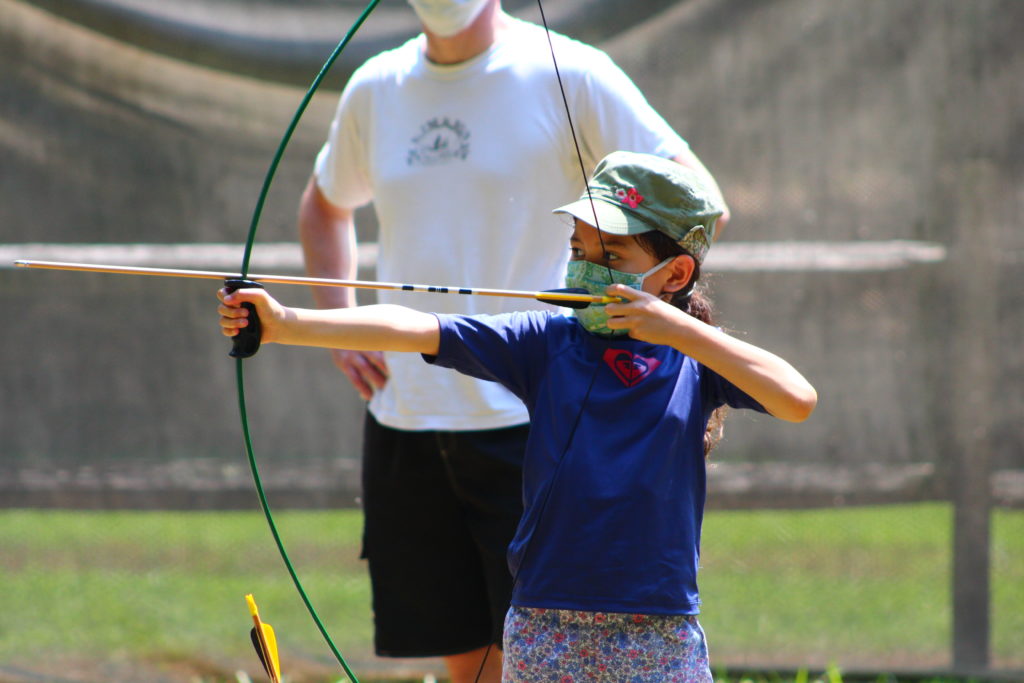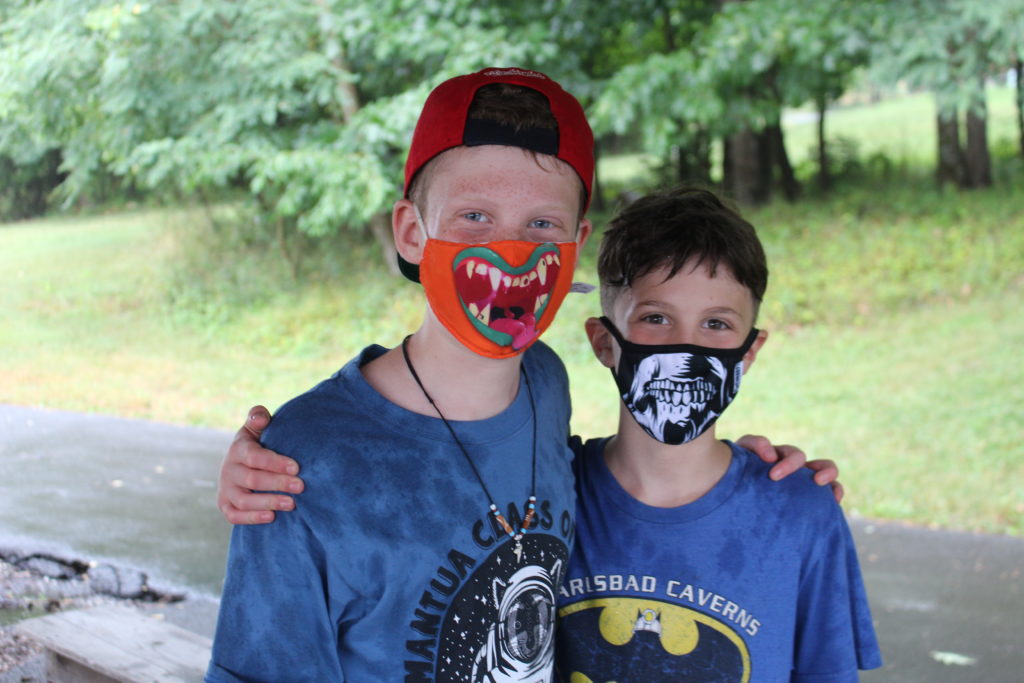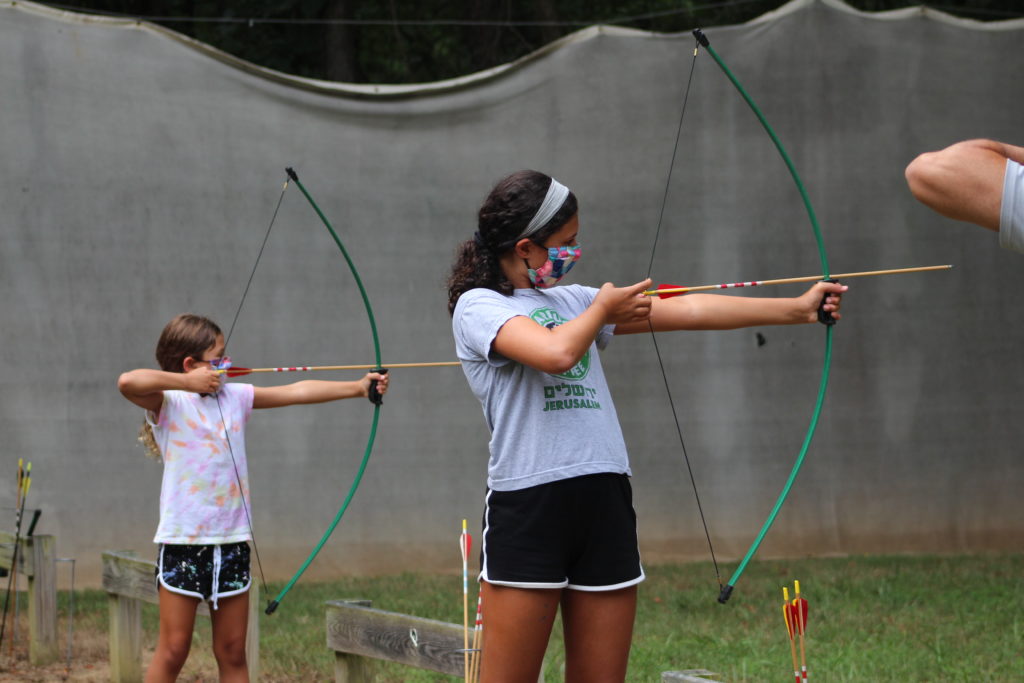
Is it safe to send your children to camp this summer? With coronavirus cases at some of their lowest levels since the pandemic began, many camps are saying yes.
“With the closure of camp last summer, we knew that we had a responsibility to our campers and counselors to work as hard as we needed to work in the off season to make sure that we would be able take the safety precautions in order to open camp,” said Havi Goldscher, interim CEO of Capital Camps and Retreat Center in Waynesboro, Pa. “We knew that our campers and counselors desperately needed to be back in a safe and fun community after the year they’ve had through
the pandemic.”
Capital Camps is expecting some 80 campers, between 7 and 17 years old, from the Baltimore area this year, Goldscher said. The camp will feature multiple sessions, the first of which will begin June 28 and the last of which will be Aug. 17. Sessions can be as short as five days or as long as seven weeks. Activities at Capital Camps will include sports, boating, fishing, swimming, theater, arts and crafts, Israeli dancing and obstacle courses, Goldscher said.
While Capital Camps’ goal is to mitigate the spread of the pandemic, Goldscher emphasized that “no camp can say that they are going to make sure that COVID does not enter their camp.”
She compared their pandemic protocols to an image of several layers of Swiss cheese stacked on top of each other.
“While some things may fall through holes in Swiss cheese, we hope that the multiple layers will reduce exposure,” she said.
To keep the coronavirus as contained as possible, Capital Camps’ campers will undergo testing at separate facilities before their arrival, and the camp is asking families to self-quarantine and practice social distancing prior to their child’s arrival. In the opening days of camp, campers will be divided into small cohorts that will initially be kept isolated from each other. Later in the summer, if the data indicates that Capital Camps is managing COVID-19 effectively, staff may choose to bring cohorts together at a small level, Goldscher said.

Frequent handwashing will be emphasized, and face masks will be required if different cohorts are interacting, Goldscher said. When it comes to masks, Capital Camps is also closely following CDC guidelines as well as the recommendations of their medical committee.
Over at the Pearlstone Center, both the Tiyul Adventure Day Camp and Tiyul Adventure Overnight Teen Earthskills Week programs will also be in-person, said Clara Feigelson, a program coordinator and acting camp administrator at Pearlstone.
The day camp program is for first to seventh graders, who will be able to participate in swimming, shelter building and learning how to harvest farm-grown fruits and vegetables, Feigelson said. Parents will be expected to fill out a daily health screening when dropping off their children, and masks will be mandatory while indoors. When outdoors, masks will be required when campers are less than 6 feet away from someone outside of their household.
The earthskills program is for campers 12 to 16 years old. Camp activities include learning how to build bows and arrows and crafting leather items such as backpacks, knife handles and sheaths. Campers will sleep outside in personal tents that will be spaced 6 feet apart and will need to wear masks when less than 6 feet away from each other.
Meanwhile, Camp Shoresh, a 107-acre Jewish day camp in Adamstown, expects campers to be masked when in indoor facilities. The camp will keep tabs on what the guidelines will be for masking while outside.
“We’ve heard a few different things from the CDC and from the state,” said Rabbi David Finkelstein, Camp Shoresh’s executive director. “Our hope is that we do not have to wear a mask outside, mainly in the summer when it gets to be 100 degrees and it’s brutal for the kids. But we’ll do whatever the guidelines say.”
Campers at Shoresh range from 3 year olds to 10th graders. The facilities include basketball courts, an archery range, a miniature golf course, a library and a 1950s-style diner. Additionally, Finkelstein expects current or former members of the Baltimore Ravens to come teach football to the campers.
“You walk into our camp, it is all day, fun, spirited, Jewish music blasting from the speakers outside,” Finkelstein said.

Habonim Dror Camp Moshava, an overnight camp in Street, Md., is expecting full capacity when the season begins, with as many as 150 campers from third through 10th grades, said Talia Rodwin, the camp’s assistant director. It will run from June 27 to Aug. 8.
While it was not challenging for the camp to decide to have an in-person experience this summer, Rodwin said, it has been a challenge to stay up to date on the evolving information coming from the CDC and the American Camping Association.
“We’ve basically been planning it since the middle of last summer,” Rodwin said. “The plans that we drew up in December 2020 have shifted a lot since then, so we’re kind of rolling with the punches.”
Changes have included hiring additional staff such as an extra nurse, a full-time chef for food safety and cleanliness and more bunk counselors.
Rodwin expects much of the camp’s programming to be similar to that of previous years, with activities like tubing, hiking, kayaking and art, to name a few. There is also an educational component, with classes on social justice, Jewish identity and campers’ relationships with Israel.
All campers are required to go through a 14-day quarantine before arriving at camp, and to get tested both before and during camp. Campers will be allowed to remove their masks when within their own cohort, which will range from 10 to 15 campers. However, “whenever they’re mixing and mingling with different groups,” she said, “they need to be either masked, outside or distanced; a combination of two of those three things.”
Depending on future coronavirus test results, staff at Habonim Dror Camp Moshava may choose to combine some of the smaller cohorts, Rodwin said.
“I would say most people who go to Camp Mosh say that it changes their life for the better,” Rodwin said. “I was also a camper there and feel like my life path was definitely altered from being in that space.”







